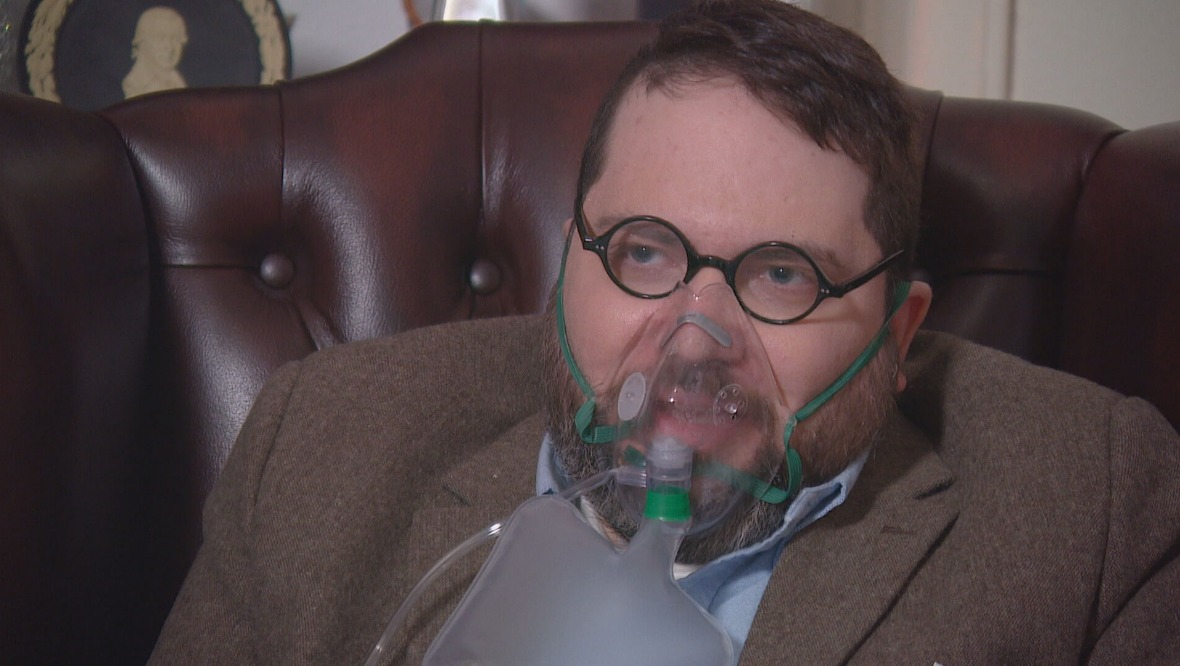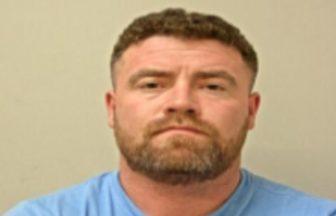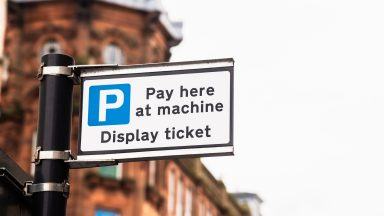A man wanted in the US for sex crimes has been ordered by a sheriff to provide his fingerprints to prosecutors.
The man, alleged to be 34-year-old be Nicholas Rossi, was ordered to provide his dabs following a hearing on Thursday at Edinburgh Sheriff Court.
Sheriff Norman McFadyen made the order after hearing from prosecutor Julie Clark how establishing the man’s identity was the only issue in the case.
Ms Clark told the court that lawyers for the man, who was arrested last week for allegedly threatening Glasgow medics, had previously given a court assurances that the man would provide his fingerprints and DNA.
She said that a judge at the Sheriff Appeal Court had given the man bail on the expectation that he would do so.
But Ms Clark said: “The appeal sheriff gave him bail on the basis that he would provide his fingerprints and DNA to show that he is not Nicholas Rossi.
“So far he has refused to do so. He continues to deny he is Nicholas Rossi and the Crown simply cannot establish his identity in the matter.
“That is why I am seeking a warrant for this case.”
It is the latest episode in a long running extradition case.
The man is currently remanded to HMP Edinburgh.
He was first arrested on December 13 last year after being admitted to Glasgow’s Queen Elizabeth University Hospital for urgent treatment for Covid 19.
He is said to have checked into the medical facility using the alias Arthur Knight.
He was traced following a tip off from Interpol whilst he was on a ventilator in intensive care.
Law enforcement agencies in America claim that the man faked his own death to flee charges there and that he came to live in Scotland under an assumed identity.
He is wanted in Utah over an allegation of sexual assault.
But the man says it’s a massive mistake – he says he’s called Arthur Knight and claims never to have been in America.
During earlier proceedings the man has attended court in a wheelchair and has taken oxygen from a portable tank.
A prosecutor told Sheriff Kenneth Maciver QC earlier this year that the man produced an Irish driving licence in the name of Arthur Knight.
However, prosecutor Julie Clark said checks had been conducted with the Irish government and authorities there had no record of the document ever being “legitimately” issued.
The man was later detained after he allegedly acted aggressively towards staff at the Queen Elizabeth University Hospital in Glasgow on Tuesday.
Prosecutors claim the man acted in an aggressive manner towards a consultant and senior charge nurse as they carried out their duties at the hospital.
The man was remanded in connection to the allegations and is set to appear in court on the charges next month. This was after a Glasgow sheriff heard how fingerprints obtained from the man matched those taken from Rossi by US prosecutors.
On Thursday, Ms Clark said that even although the Crown already had his fingerprints from the Glasgow case, it wanted to take a “belt and braces” approach and maintain lawfulness by obtaining a court order to use them in the extradition matter.
She said that the US authorities had provided a full set of fingerprints of Rossi’s and obtaining the man’s markings would help settle the matter.
She added: “It is unusual for identity to be an issue in extradition proceedings – the matter is usually resolved by the requested person accepting that they are person being asked for.”
Ms Clark said it was in the “public interest” for the man to be extradited to America as he was wanted for rape.
She added: “The requesting party is the United States. The United States is a long standing and trusted extradition partner. It is in the public interest for the United Kingdom to comply with its treaty obligation.
“The accusation is rape. It is in the public interest that offences of this nature are properly investigated and prosecuted.”
Sheriff McFadyen ordered that Police Scotland officers travel to HMP Edinburgh to obtain fingerprints from the male sometime in the immediate future.
The man observed proceedings from HMP Edinburgh via video link.
He appeared to have a black eye and look dishevelled, wearing the same burgundy pyjamas that he wore during an earlier court appearance.
Upon appearing on monitors in court, the man broke down and started weeping. He asked prison guards who were standing beside him to give him oxygen.
He asked if his wife Miranda was present in court. She wasn’t. She spent the entire one hour and 40 minute hearing somewhere else in the court building.
He told Sheriff McFadyen that his brain was being starved of oxygen.
He said: “I need oxygen immediately. I am hypoxic. I haven’t been given oxygen for 36 hours.”
Sheriff McFadyen said that medical tests showed he was alright.
He added: “I have been told that your oxygen saturation levels have been tested and are normal.”
The man then said he doubted the tests were correct:
He added “They tested me with a Poundland oximeter.”
The man also told the court that he had been attacked whilst on remand.
He said: “I have been assaulted.”
The man also started to speak about why he shouldn’t be extradited and asked the court to be suspicious of the concept of “American exceptionalism.”
He also offered to go to America – but only on the condition that the court accepted that he was Arthur Knight and not Nicholas Rossi.
Sheriff McFadyen said this wasn’t acceptable .
The man also failed to have press reporting banned on the case.
He described the Scottish Sun as being “dastardly” and that reporters from the “red tops” and the Daily Mail were sensationalising his case.
Photographers also followed his wife who was doing nothing more than buying milk.
When asked for her view, Ms Clark said that it sounded like the man needed a remedy which could only be granted by a civil court and not an extradition court.
Sheriff McFadyen told him that a press reporting ban wouldn’t be possible in the circumstances. He said the press were entitled to report court hearings.
Ms Clark asked for the extradition hearing to be postponed until the conclusion of the criminal case in Glasgow.
Sheriff McFadyen agreed and the extradition case will call on August 11 – two days after he stands trial at Glasgow Sheriff Court on the threatening behaviour allegations.
Follow STV News on WhatsApp
Scan the QR code on your mobile device for all the latest news from around the country


 STV News
STV News
























